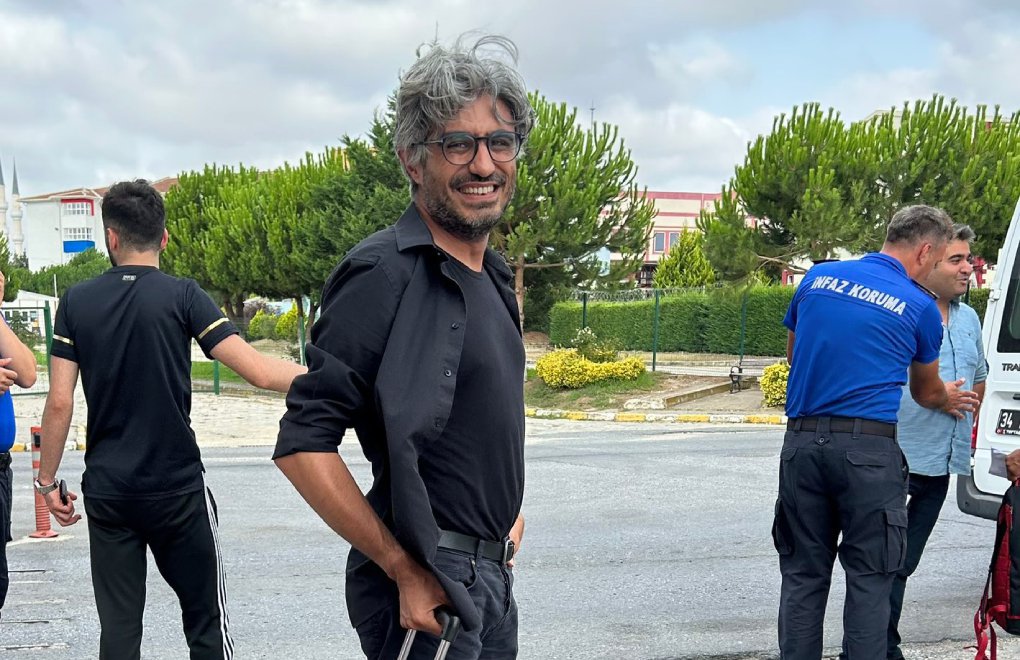Click to read the article in Turkish
Imprisoned on Wednesday due to a breach of probation terms, journalist Barış Pehlivan penned his thoughts from Marmara (Silivri) Prison, situated on the outskirts of İstanbul, for his Cumhuriyet column.
Drawing parallels between the prison and a military barracks, Pehlivan delved into the circumstances within the open prison he is currently kept in.
In the article, Pehlivan recounts an interaction with a fellow inmate who told him, "While our presence here might be expected, seeing you in this setting feels somewhat ashaming."
Here is the translation of Pehlivan's article:
"Over 2,500 prisoners have been your fellow passengers in 8 months," I hear this from an inmate as we chat on a bench in the prison's backyard. He adds, "They've passed such a law that no one can understand."
"The open prison, from its wards to its courtyard, mess hall to its lines, is much like a military barracks... In the barracks, it's the nation that's kept alive, while here, it's other prisons. In fact, the open prison in Silivri campus feeds the 10 closed prisons within. For instance, over 20,000 loaves of bread are baked here every day and distributed to the closed prisons. Yes, inmates are involved in production.
"Another prisoner approaches me...
"I feel embarrassed seeing you here," he says. I'm at a loss for words, and a sentence like "Justice is needed for everyone" comes out of my mouth.
From my conversations, I learn that...
Offenders categorized as 'sexual' for abuse and rape have swiftly been released from prison under this recent execution law. They've been replaced with those who benefitted from the same law and transitioned early from closed to open prisons.
But capacity falls short...
Many inmates arrive, some for a short while and others for longer periods. I hear that there are those who sleep on the raised triple-tier bunks or even on the floor in the adjacent building.
Naturally, I encounter the question most often, "Do you think there will be an amnesty?" I explain what I know, my conjectures, and the intricacies of the matter. They don't seem too satisfied with my answers.
While strolling, someone mentions the name of a former minister known for his exploits: "I sold drugs for 15 years. I used to get my supply from that minister's nephews. Why aren't they here? I've been in prison for years, and I haven't seen a single drug lord. They call us 'dealers,' their power is only enough for us."
I continue walking. The quaint shanties from that folk song are no longer there. I think of my distant friends in the blink of an eye. I write, I grow... (HA/VK)





